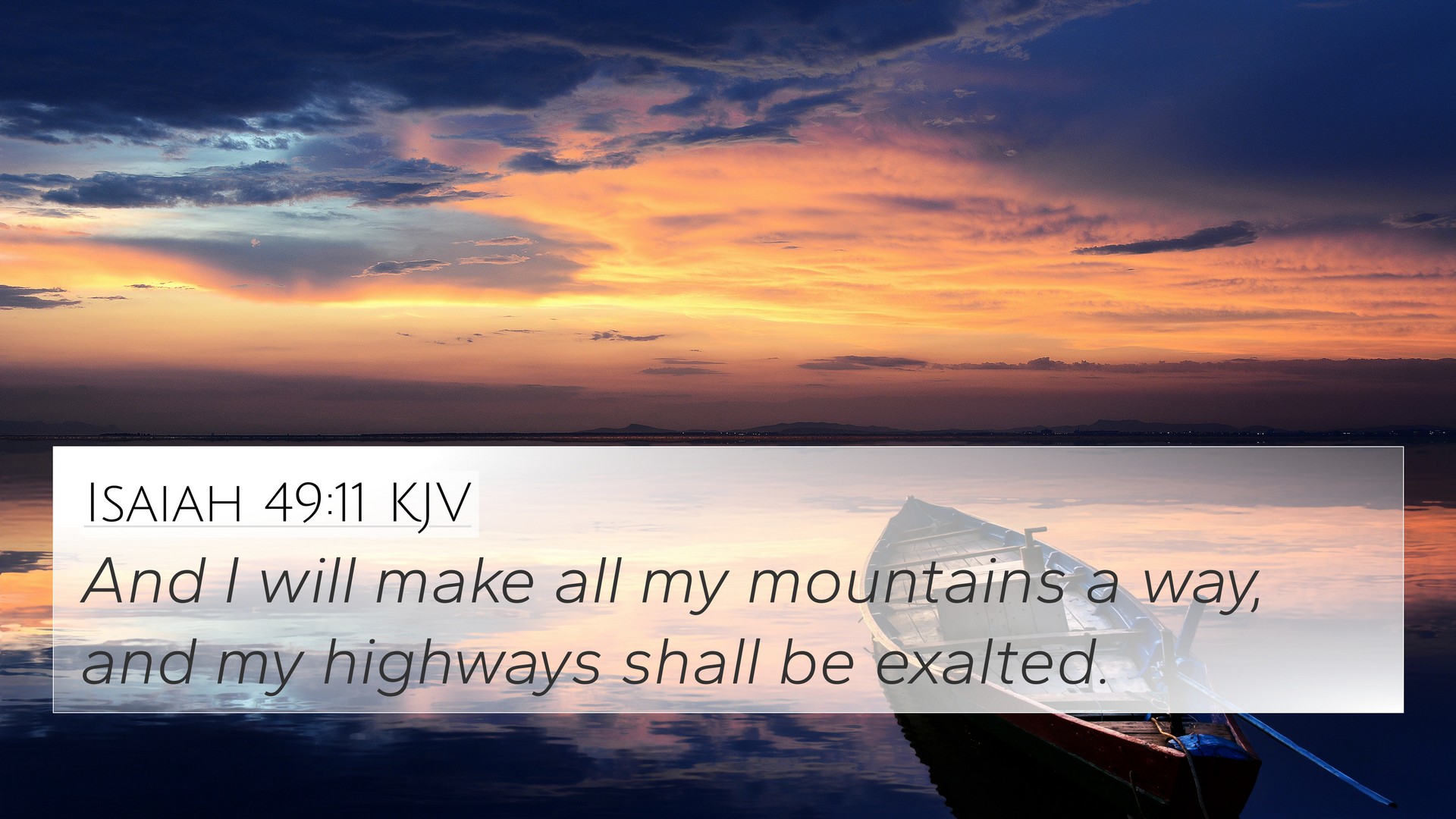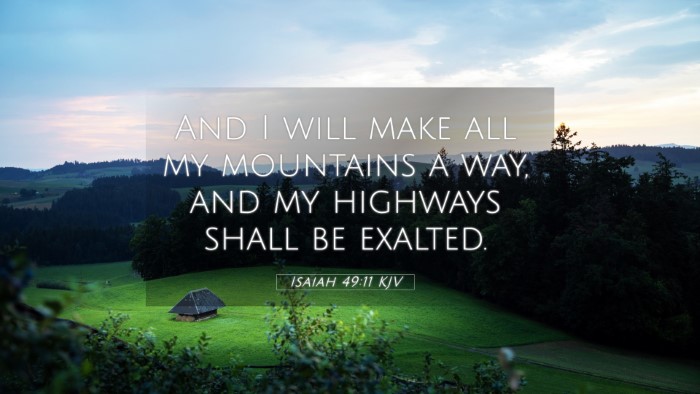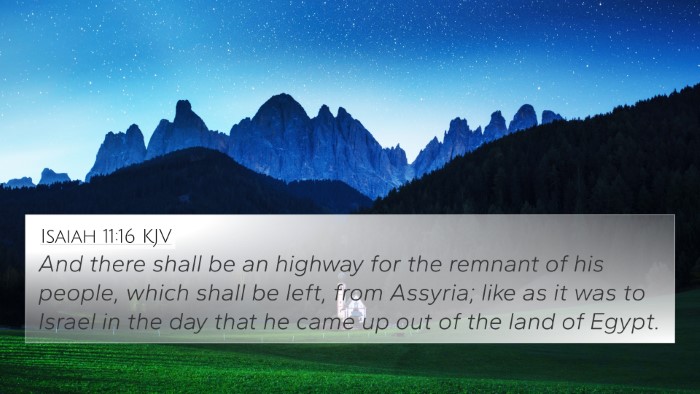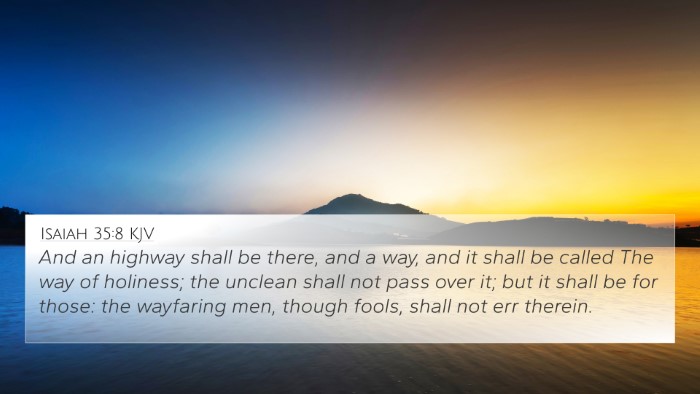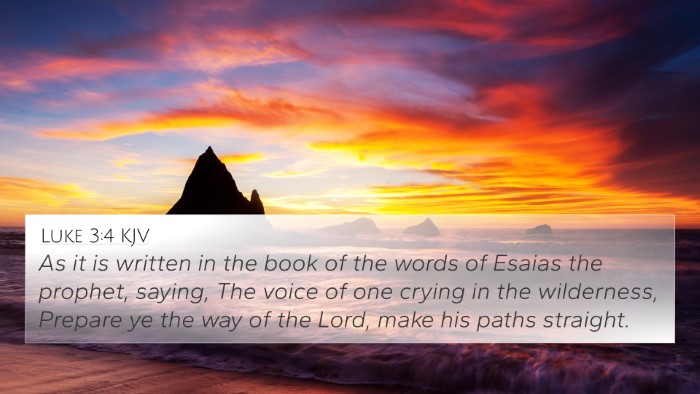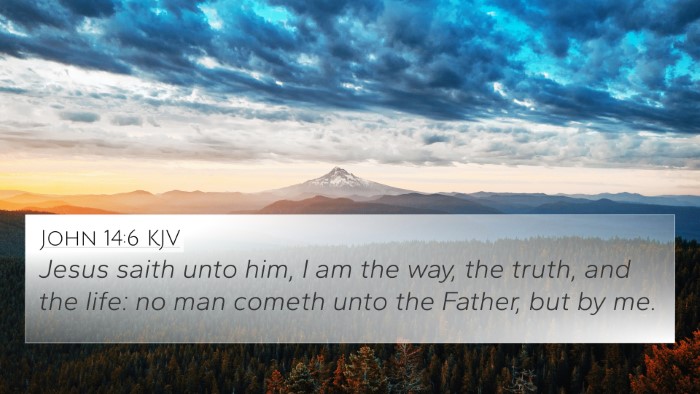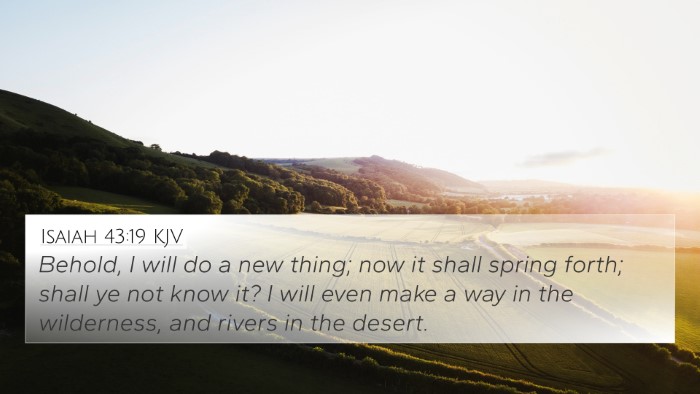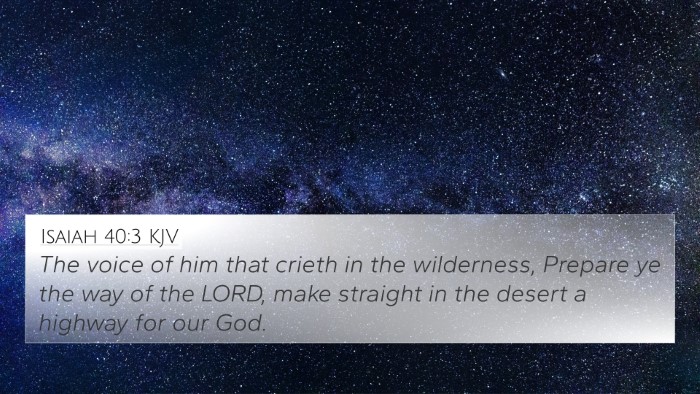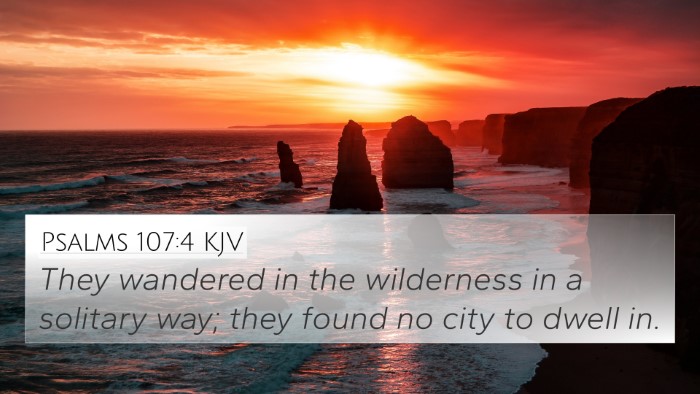Understanding Isaiah 49:11
Isaiah 49:11: "And I will make all my mountains a way, and my highways shall be exalted."
This verse from Isaiah is rich in imagery and significance, detailing God's promise to His people. Through insights from various public domain commentaries, we can gain a deeper understanding of its meaning.
Context and Overview
The greater context of this verse outlines God's faithfulness to Israel and His commitment to restore His people. In Isaiah 49, the prophet encapsulates God's plans for both judgment and salvation.
Commentary Insights
Matthew Henry: Henry emphasizes the restoration aspect of this verse, indicating that God will make a path for His people, leading them towards salvation. Mountains represent obstacles, and God promises to level them, illustrating His power to remove difficulties in a profound way.
Albert Barnes: Barnes interprets the 'mountains' as towering challenges that block the way to spiritual fulfillment. The 'highways' signify the prepared paths wherein God's people can travel freely and safely, highlighting divine guidance and the ease of access to God’s promises.
Adam Clarke: Clarke notes the symbolic language employed by Isaiah, suggesting that God's intervention will transform the landscape, metaphorically indicating paving the way for a new covenant and renewed relationship between God and His people.
Thematic Connections
This verse holds various thematic connections within Scripture, notably its focus on God's provision and guidance. Below are some related themes and cross-referenced verses:
- Psalm 107:7: "And he led them forth by the right way, that they might go to a city of habitation."
- Isaiah 40:3: "The voice of him that crieth in the wilderness, Prepare ye the way of the LORD, make straight in the desert a highway for our God."
- Isaiah 43:16: "Thus saith the LORD, which maketh a way in the sea, and a path in the mighty waters;"
- Proverbs 3:6: "In all thy ways acknowledge him, and he shall direct thy paths."
- John 14:6: "Jesus saith unto him, I am the way, the truth, and the life: no man cometh unto the Father, but by me."
- Revelation 21:4: "And God shall wipe away all tears from their eyes; and there shall be no more death, neither sorrow, nor crying, neither shall there be any more pain: for the former things are passed away."
- Micah 4:2: "And many nations shall come, and say, Come, and let us go up to the mountain of the LORD, and to the house of the God of Jacob; and he will teach us of his ways, and we will walk in his paths: for the law shall go forth of Zion, and the word of the LORD from Jerusalem."
Interpretative Framework
To fully grasp the implications of Isaiah 49:11, one must engage in a comparative Bible verse analysis, linking it with other passages that touch upon God’s guidance and provision. The prophet's imagery denotes not just literal pathways but also spiritual journeys and the hope of divine intervention in times of struggle.
Practical Applications
In our daily lives, believers can draw strength from assurances rooted in this verse. It assures that whatever mountains we face, God is active in leveling those challenges. Here are some applications:
- Faith in Divine Guidance: Trust that God paves the way for you.
- Encouragement to Persist: Remain steadfast through obstacles, knowing God goes before you.
- Hope in Restoration: Cling to the promise of God's transforming power in difficult situations.
Conclusion
Isaiah 49:11 is a profound declaration of God's commitment to His people, symbolizing hope and divine assistance. The interconnectedness of this verse with others through cross-referencing enhances understanding and encourages a deeper exploration of themes surrounding guidance, restoration, and divine intervention.
In sum, as believers delve into the thematic Bible verse connections, they will discover the beauty woven throughout the scriptures, illuminating paths of faith. Engaging with tools for Bible cross-referencing enhances study, offering richer insights into the dynamic relationship between God and His people.
